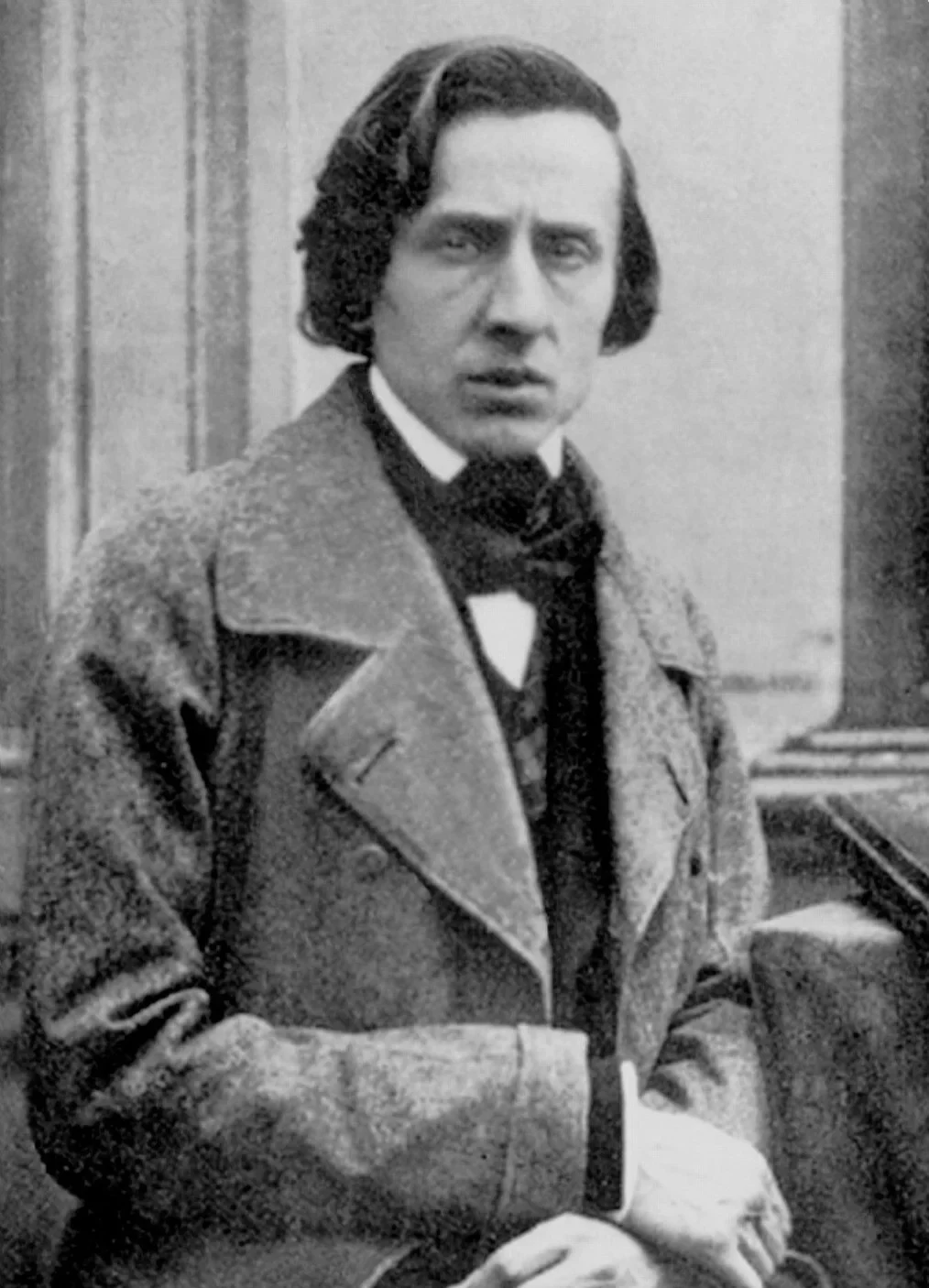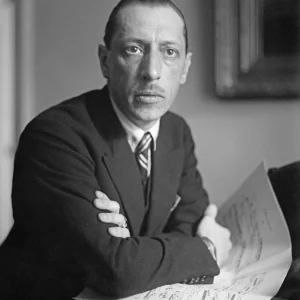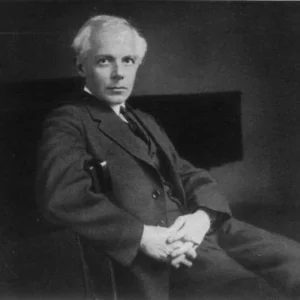Frédéric François Chopin, born on March 1, 1810, in Żelazowa Wola, Poland, is regarded as one of the greatest composers and pianists in the history of classical music. Known as the “Poet of the Piano,” Chopin’s compositions, characterized by their lyrical beauty and technical brilliance, have left an enduring legacy. His innovative approach to piano music and his deep emotional expression continue to inspire musicians and audiences around the world.
Early Life and Education
Frédéric Chopin was born to a French father, Nicolas Chopin, and a Polish mother, Justyna Krzyżanowska. His father was a teacher and musician, while his mother came from a family of minor Polish nobility. Chopin’s early exposure to music came from his mother, who gave him his first piano lessons. By the age of six, he was already displaying remarkable talent and began composing simple pieces.
Chopin’s formal music education began in Warsaw, where he studied at the Warsaw Conservatory under the guidance of Józef Elsner. His prodigious talent quickly became evident, and he gave his first public concert at the age of eight. During his time at the conservatory, Chopin honed his skills in composition and piano performance, drawing inspiration from the works of Bach, Mozart, and Beethoven.
Early Career and Influences
After completing his studies in Warsaw, Chopin embarked on a concert tour that took him to several European cities, including Vienna, where he received critical acclaim. His early compositions, such as the Rondo in C minor and the Variations on “La ci darem la mano,” showcased his virtuosic piano technique and innovative musical ideas.
Chopin’s exposure to the broader European musical scene had a profound impact on his development as a composer. He was particularly influenced by the operatic style of Italian composers like Bellini and Rossini, as well as the emerging Romantic movement. This period of exploration and experimentation laid the groundwork for his mature style.
Paris and Musical Maturity
In 1831, Chopin moved to Paris, which would become his home for the rest of his life. Paris was the cultural and artistic capital of Europe, and Chopin quickly became part of the vibrant musical community. He formed friendships with other prominent musicians, including Franz Liszt, Hector Berlioz, and Felix Mendelssohn, and gained the patronage of wealthy aristocrats.
Chopin’s time in Paris marked a period of intense creativity and productivity. He composed many of his most famous works during this time, including his Ballades, Nocturnes, and Études. These pieces are characterized by their lyrical melodies, intricate harmonies, and technical demands. Chopin’s ability to convey deep emotion and nuance through the piano earned him the admiration of both his contemporaries and future generations of musicians.
Major Compositions
Nocturnes
Chopin’s Nocturnes are among his most beloved works. These pieces, inspired by the nocturnal scenes and moods, are characterized by their lyrical beauty and expressive depth. Notable examples include the Nocturne in E-flat major, Op. 9, No. 2, and the Nocturne in C-sharp minor, Op. 27, No. 1. These works showcase Chopin’s ability to create a sense of intimacy and introspection through his music.
Ballades
Chopin’s Ballades are narrative compositions that blend poetic storytelling with musical innovation. The Ballade No. 1 in G minor, Op. 23, is particularly famous for its dramatic and emotional intensity. Each Ballade follows a unique structure, allowing Chopin to explore a wide range of themes and emotions. The Ballades are considered some of the most challenging and rewarding pieces in the piano repertoire.
Études
Chopin’s Études are technical studies that also serve as exquisite musical compositions. The Études, Op. 10 and Op. 25, are renowned for their technical demands and artistic brilliance. Pieces like the “Revolutionary” Étude in C minor, Op. 10, No. 12, and the “Winter Wind” Étude in A minor, Op. 25, No. 11, have become staples of the pianist’s repertoire, showcasing Chopin’s innovative approach to piano technique.
Personal Struggles and Triumphs
Despite his success as a composer and performer, Chopin’s life was marked by personal struggles and health issues. He suffered from a chronic respiratory illness, likely tuberculosis, which weakened him and limited his public performances. Chopin’s frail health contributed to his introspective and melancholic musical style.
Chopin’s romantic relationships also played a significant role in his life and work. His tumultuous relationship with the writer George Sand (Amantine Lucile Aurore Dupin) was both a source of inspiration and emotional turmoil. The couple spent several years together, often retreating to Sand’s estate in Nohant, where Chopin composed many of his late masterpieces.
Impact on Music and Legacy
Frédéric Chopin’s contributions to the world of music are immeasurable. His innovative approach to piano composition and performance redefined the possibilities of the instrument. Chopin’s emphasis on lyrical melodies, expressive phrasing, and intricate harmonies set new standards for piano music.
Chopin’s influence can be seen in the works of subsequent composers, including Claude Debussy, Sergei Rachmaninoff, and Alexander Scriabin. His ability to convey deep emotion through his music has made his works timeless and universally beloved. Chopin’s compositions continue to be performed and recorded by pianists around the world, ensuring that his legacy endures.
Legacy and Influence
Chopin’s legacy is celebrated through various institutions and events dedicated to his life and work. The Fryderyk Chopin Institute in Warsaw, established to preserve and promote his music, houses an extensive collection of manuscripts, letters, and personal artifacts. The International Chopin Piano Competition, held every five years in Warsaw, attracts some of the world’s most talented young pianists and serves as a testament to Chopin’s enduring influence.
Chopin’s music has also inspired countless adaptations in various forms of media, including ballet, film, and literature. His ability to evoke a wide range of emotions and moods through his music has made his compositions a source of inspiration for artists across disciplines.
Conclusion
Frédéric Chopin’s life and work embody the essence of Romanticism and the power of musical expression. His ability to convey deep emotion and nuance through the piano has left an indelible mark on the world of classical music. From his early beginnings in Poland to his status as one of the greatest composers and pianists of all time, Chopin’s journey is a testament to the transformative power of music.
Through his compositions, performances, and personal writings, Chopin invites listeners to explore the depths of human emotion, offering both a reflection of and a respite from the complexities of life. His contributions to music continue to be celebrated, ensuring that the legacy of the “Poet of the Piano” will endure for generations to come. Chopin’s exploration of lyrical beauty, technical brilliance, and emotional depth remains relevant, inspiring and challenging musicians and audiences to connect with the timeless beauty of his music.



